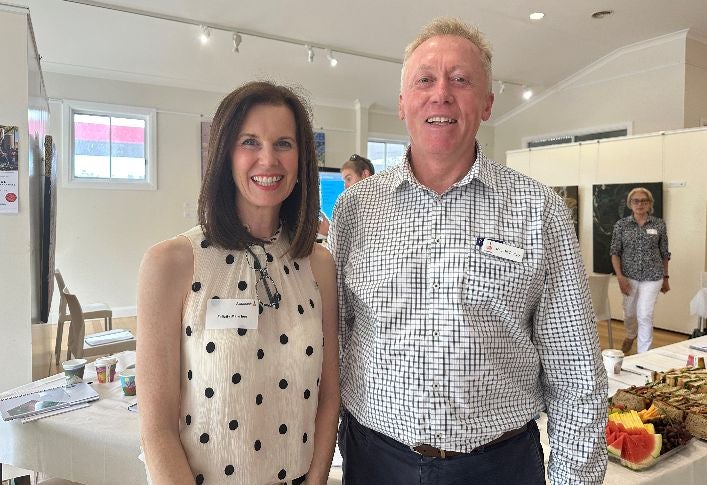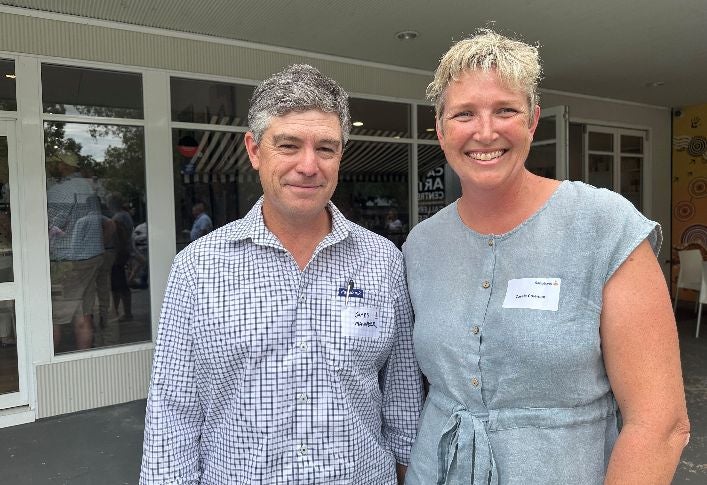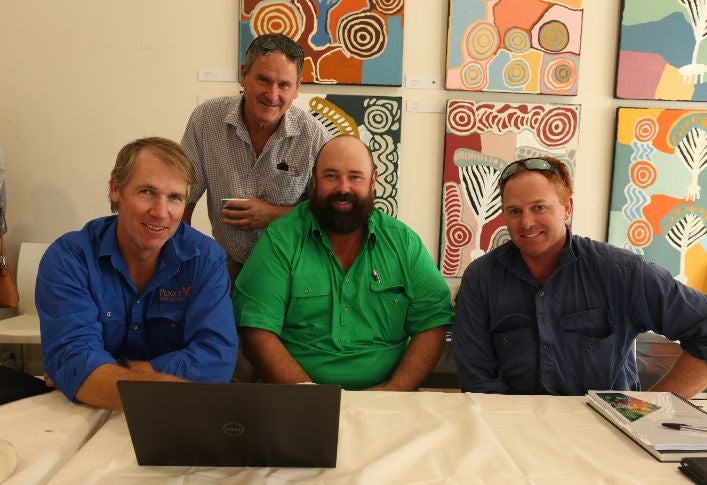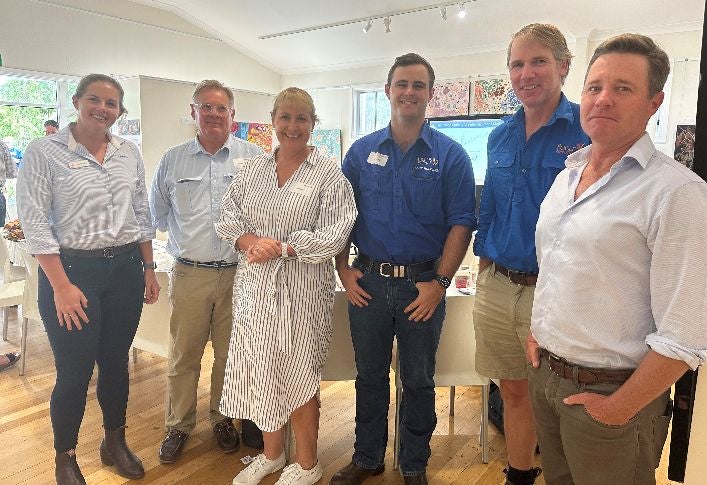Posted by on
03/04/2023
It can be an overwhelming, and potentially confusing topic for farmers on the ground, and a recent Carbon Farming and Carbon Neutral Agriculture workshop in Moree aimed to help simplify, and declutter the carbon conversation.
Rabobank held the two-day workshop to help build knowledge on the basic fundamentals of carbon in farming, including the science, global policy and how it may relate to farm businesses.
Presented by Dr Richard Shephard, a Veterinary Epidemiologist and Farm Management consultant, the interactive sessions enabled farmers and staff to explore carbon neutral options, solutions and what the future may look like, together, whilst also outlining how individual farms can calculate their own greenhouse gas emissions.

“We believe the calculation of emissions is the first step for all farm enterprises, and these workshops provide an opportunity for clients to measure their carbon emissions using the Greenhouse Accounting Framework developed by the University of Melbourne,” Dr Shephard said.
Armed with detailed data on the use of inputs such as fertiliser, fuel, electricity, herbicide and pesticide, as well as livestock inventory, tree plantings and manure management, the calculator provided a carbon emissions number for clients.
“Farms are a source of emissions, whether it’s through livestock or cropping, and they can also sequester and be a sink for carbon through vegetation,” Richard explained. “The completion of the carbon calculator enabled clients to obtain an understanding of where they sit.”
“The workshop also provided the latest thinking on where practices, technology and research is heading – providing clients with the tools necessary when considering reducing carbon emissions.”
Richard commented there was a genuine willingness from attendees to engage in the conversation, with plenty of probing questions and problem solving.
Mark Sirl, ‘Lynden’, Bullarah was one such attendee, and having already investigated a number of carbon opportunities on his mixed farming property, he believed the workshop provided the most comprehensive, and complete, carbon picture.

“Our operation is heavily weighted towards grazing, and with the correct grazing management techniques we have the ability to build carbon into our soil – the potential to monetise that through a carbon project is something I’ve been actively looking into,” he said.
“The workshop provided a great overview of regulatory requirements, and highlighted that we may be better off not selling our carbon credits, rather, they may have more value being retained on-farm for carbon neutrality.”
And while much of Mark’s attention thus far had focussed on putting carbon back into the soil, he said a thorough overview of global emissions by industry, later broken down into specific cropping and livestock emissions, put the bigger picture into perspective.
“There are some huge challenges at an economic, industry and local operational level, and the workshop highlighted the limitations of the carbon accounting models, which make some generalised and broad brush assumptions.”
As a young farmer curious about carbon opportunities, he said he was impressed, and reassured that Rabobank could ‘speak the same language’.
“It’s reassuring to know that our bank is on board with carbon accounting, and their potential for our business, and that the local team understand the framework and the process to calculate baseline carbon and sequestered carbon – it makes for a genuinely meaningful conversation.”
On the journey together
As a bank dedicated exclusively to agriculture, Area Manager Felicity Taylor said Rabobank staff were equally engaged in the carbon conversation, with the workshop building their knowledge and how they can best support clients.
“This is an evolving space where a knowledge gap exists, and the workshop provided a joint learning opportunity for clients and staff alike, learning side-by-side for a sustainable agricultural future.”
“There is an inevitable imperative for agriculture to start working towards the low emissions production systems, with most supply chains targeting this by 2030,” she said. “While many farmers are aware of the imperative, they are unaware of what their options are to move forward.”

“This workshop was far more than just a two-day training course, but represented an engagement process whereby regional managers and clients could come together in a shared learning experience to further understand the global dynamics of this space and how these farms can start the journey towards a profitable but also low carbon future production system.”
Rabobank also recently held a workshop in Dubbo, with the next round of workshops being held in Orange, 4-5 April, Canberra, 30-31 May, Forbes, 6-7 June, Armidale, 6-7 June, and Tamworth, 8-9 June.
